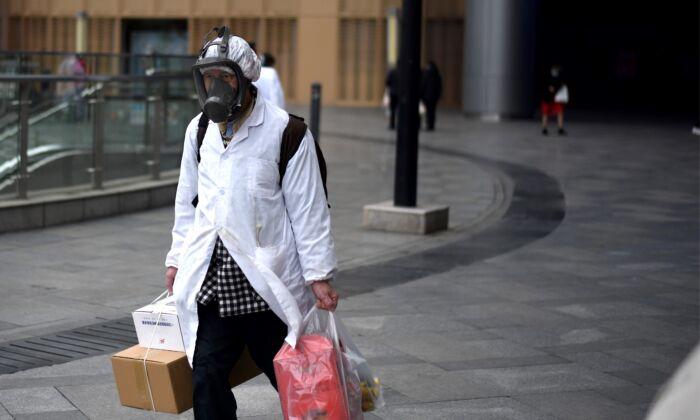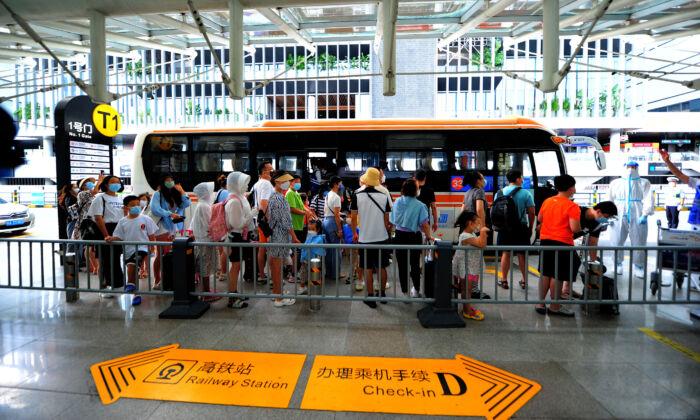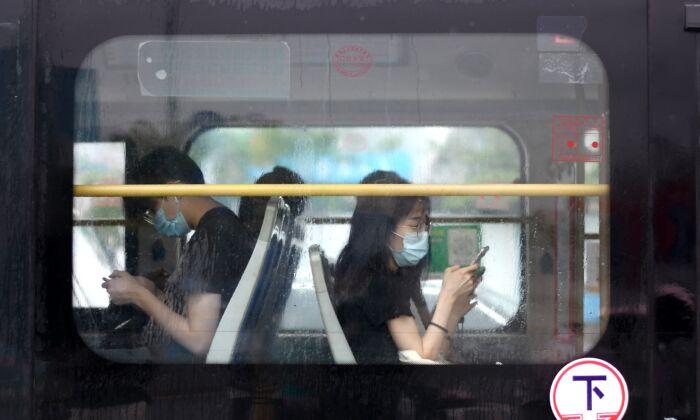As more cases of asymptomatic patients carrying the CCP virus appear in China, medical experts recently expressed alarm that they could be further spreading the pathogen and cause another severe outbreak.
“My team tested some patients who had no symptoms for three weeks, but the virus was found in their blood,”
said Zhang Wenhong, head of a clinical expert team in Shanghai in charge of dealing with the current pandemic, during a research seminar on viruses held on March 27. “The asymptomatic carriers are the biggest risks [of a new outbreak].”
Zhang said that if authorities don’t take action to prevent a future outbreak, “our doctors will be very busy for a long period of time in the future. An asymptomatic carrier may spread the virus to the community at any time.”
Chinese authorities have reported zero or single-digit new infections in recent days, claiming that the CCP virus, commonly known as novel coronavirus, has been contained.
Carriers
On March 29, China’s National Health Commission
announced that there was one new infection in Henan province.
Henan authorities
reported that the patient, surnamed Wang, was a 59-year-old woman who lives in Luohe city. On the evening of March 24, she had a headache, then developed a fever on March 26.
Authorities found that Wang got the virus from her classmate Zhang, who was a medical worker. Zhang’s workplace gave all staff a diagnostic test on March 25, and Zhang tested positive despite not showing symptoms. Zhang contracted the virus from two colleagues Liu and Zhou. Zhou had visited Wuhan recently.
Zhang, Liu, and Zhou were placed under quarantine at a quarantine center after they tested positive.
Wang isn’t the first CCP virus patient confirmed as infected by an asymptomatic carrier.
The Wuhan municipal health commission announced on March 24 that a 29-year-old doctor working in the gastroenterology department of the Hubei General Hospital was infected after seeing an asymptomatic patient on March 18. He was diagnosed positive on March 23.
Experts’ Opinion
Currently, authorities don’t count asymptomatic carriers as confirmed cases, but asked them to stay under quarantine if they are tested and found positive.But Chinese epidemiologist expert Zhong Nanshan
dismissed the concerns on a program aired on state broadcaster CCTV on March 29: “China doesn’t have a large number of asymptomatic carriers.”
He said he didn’t believe they would spread the virus further.
However, many Chinese doctors disagreed with Zhong.
Zhang Dacheng, director of the respiratory department at Nanfang Hospital in the southern city of Guangzhou, led a team to Wuhan to treat COVID-19 patients in February and March.
Zhang
told Beijing News on March 30: “There are cases of asymptomatic carriers who slowly develop symptoms, and become in severe condition. ... In reality, they are contagious.”
Hu Guodong, another respiratory doctor at Nanfang Hospital, told Beijing News that some asymptomatic carriers had CT scans showing light damage to their lungs.
The phenomenon has drawn the attention of Chinese Premier Li Keqiang, who was appointed to lead the central government’s response to the epidemic.
During a March 30 meeting for the central government’s epidemic task force, he
said: “We must monitor, track, quarantine, and cure the asymptomatic carriers. We must screen more targeted populations to find the asymptomatic carriers.”
Li said the targeted groups include close contacts of diagnosed patients and tested asymptomatic carriers, as well as workers in regions hard-hit by the virus.
Precautions
Authorities appeared to have recently taken precautions to prevent another outbreak.On March 29 and March 30, people across China who had bought tickets to sightseeing locations, theme parks, aquariums, and entertainment facilities that had recently reopened were informed that those venues had to shut down again.
For example, the F88 Sightseeing Hall at Shanghai Jinmao Tower, which reopened on March 12,
notified people who had bought tickets that the hall would be closed again starting March 30, “according to the needs of preventing the epidemic.”
State-run Hongxing News
reported that some guests who were singing at karaoke bars in the southwestern city of Chengdu were abruptly forced to leave on the evening of March 28. Then, the bars closed down.
The government of Shenyang, a northeastern city,
notified people on March 29 that libraries and museums that reopened on March 17 would now need to limit the number of visitors to prevent the virus from spreading.





